Tired — spending your hard-earned money at a big box store or online retailer when there are a plethora of unique Bluff City businesses right there. Wired — putting your dollars to work in the Memphis economy by supporting a locally owned business.
Supporting a local business or artist means you’re less likely to be hit with a shipping delay caused by the “2021 supply chain crisis.” Even better, it means you’re helping fellow Memphians grow their dreams, and you’re likely buying something unique, maybe even something handmade right here in town.
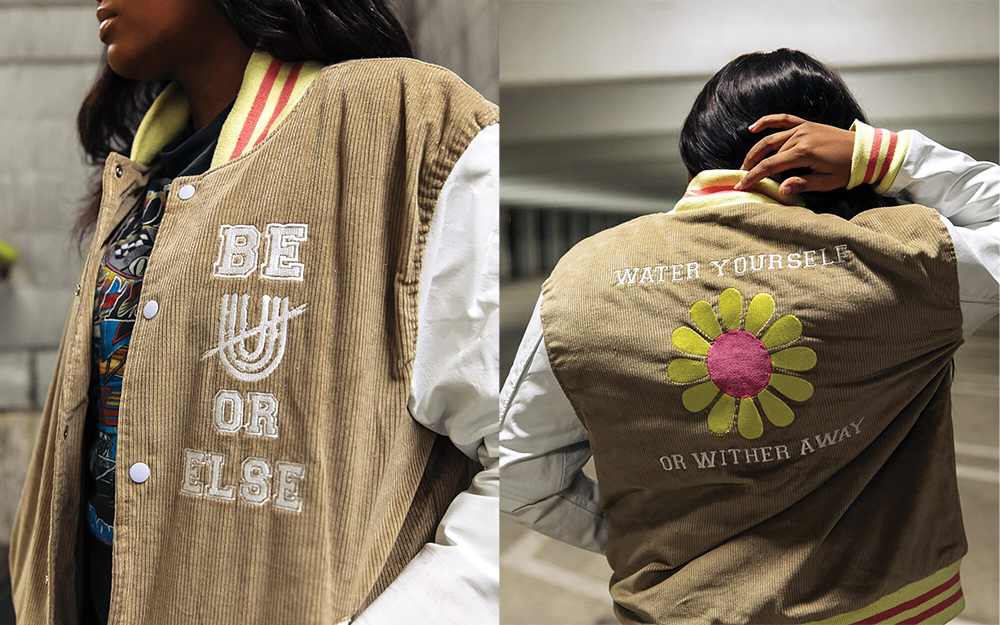
Unapologetic Garments
Many know the Unapologetic collective through their prolific musical output, but there’s much work afoot there in the realm of fashion as well. The Garments wing of their enterprise has been creating casual wear and accessories for years now. Although the president of Garments is rapper A Weirdo From Memphis (AWFM), don’t assume that all the fashion is music-related. Producer C Major, who also has helped build Garments from the beginning, says their motto is: “Garments is not merch.” As he puts it, “We don’t want to be known as Unapologetic’s merch. We want Garments to be its own brand, like Nike or Adidas. Of course, we are going to feature our artists, but we also are gonna step away from that and be our own entity. It’s like a little brother, big brother kind of vibe. We just want to get out of the big brother’s shadow and step out on our own.”
Thus, you’ll find T-shirts, hoodies, caps, and bandannas in a variety of styles. The common thread between all them is a predisposition toward the unorthodox and a spirit of empowering diversity. As AWFM notes, “We definitely push that the clothes have their own identity, but we also want them to encourage people to be ‘U.’ Of course, the U is for Unapologetic, but we’re also creating clothes that help people celebrate being themselves.”
For the fashion line’s latest release, enter the third longtime member of Garments, Sarai, who has designed a series of T-shirts celebrating a taboo term for female anatomy. Garments’ “Vagina” products take the twin Unapologetic spirits of disruption and uniqueness to a whole new level. “I’m an artist also,” Sarai notes, “focused on sexual health and wellness — things people don’t always feel comfortable talking about. So with Vagina, I wanted to challenge that. Some people in the South are kind of closed-minded. If you talk about sex or anything, they’re like, ‘Oh my God, what are you doing?’ The line actually started off as a joke when I made it. But then it was kind of like, ‘Why not make a collection that says Vagina?’ And we built from there.”
But the three creatives behind Garments have other offerings as well, including something you don’t see in every hip-hop scene: a letterman jacket. “That’s a one-off, a special edition from our Keep Blooming collection,” says AWFM. “It was a collaboration. Sarai actually did a lot of the design legwork for that, and I made the blueprint for that type of letterman. And then we went all grassroots and got it together.
“I think that highlights a rough part of the fashion world,” he adds. “Cracking that unwritten code of where you actually get clothes made. It’s really hard to figure out where you’re actually gonna get that made in a way that doesn’t completely destroy you, while still trying to be a profitable company. So we’ve been figuring out how to blossom into a next-level brand.” — Alex Greene
Unapologetic Garments can be found at weareunapologetic.com.
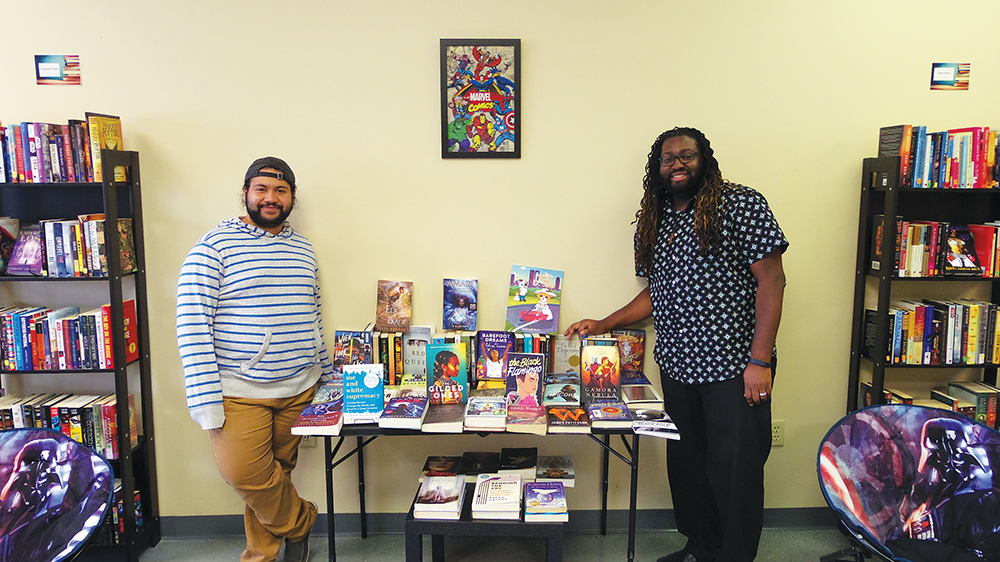
DeMoir Books & Things
When it comes to shopping for the bookworm on your list, one bookseller and entrepreneur knows just what to do. Jeremee DeMoir is a Memphian, educator, lifelong reader, author — and the owner of the Bluff City’s newest bookstore, DeMoir Books & Things.
The new store, which opened earlier this year in the Cloverleaf Center on White Station Road, is the embodiment of DeMoir’s lifelong love of books and reading.
DeMoir’s parents read to him in utero and continued that journey throughout his life. He eventually began writing his own stories as well and has authored more than a few books. As an educator, he worked to instill a love of literature in Memphis’ children. That drive to share his passion with others eventually led him to open DeMoir Books.
“I just had this inkling to feed the other half of me, which was reading. So I had to make DeMoir Books happen. I taught in underserved communities that didn’t even necessarily have access to a library in the community,” DeMoir explains. “I initially started out by donating books because I have way too many.” But donating books to libraries didn’t fully satisfy the urge to share a passion.
“I just absolutely love books, and I wanted to share my love of reading and writing with people, not just my students but people in general,” he continues.
DeMoir says the store gets regular foot traffic from White Station Middle, “and weekends are really great.” They also host game nights and biweekly movie nights, offer a loyalty program for customers, and have hosted book signings for local authors in the store’s event space. “That’s been a fulfilling thing,” DeMoir says, and as an author himself, he knows the value of seeing one’s work come to fruition. “People have come in and booked the event space, so they can have their own movie nights with their family and friends because of Covid and they don’t necessarily feel safe going to the theater. It’s been a great community spot since we opened our doors.”
That focus on community is central to the mission of DeMoir Books. As the owner finds himself repeating, everyone deserves a seat at the table.
“My background is in education, so I spent a lot of my years post-college teaching English and creative writing. So I’ll always have that literature background in the back of my head. Our goal as educators is to expose students to the world that should be around them.
“That gives a very limited scope,” DeMoir says. “The world is changing, and we have to change with the world and present new literature that can be not only all-inclusive but also meaningful to people. It’s super important to find stories that speak to the kid of 2021, the adult of 2021.” — Jesse Davis
DeMoir Books & Things is located at 739 White Station Road; (901) 464-0395. Find out more at demoir-books.square.site.
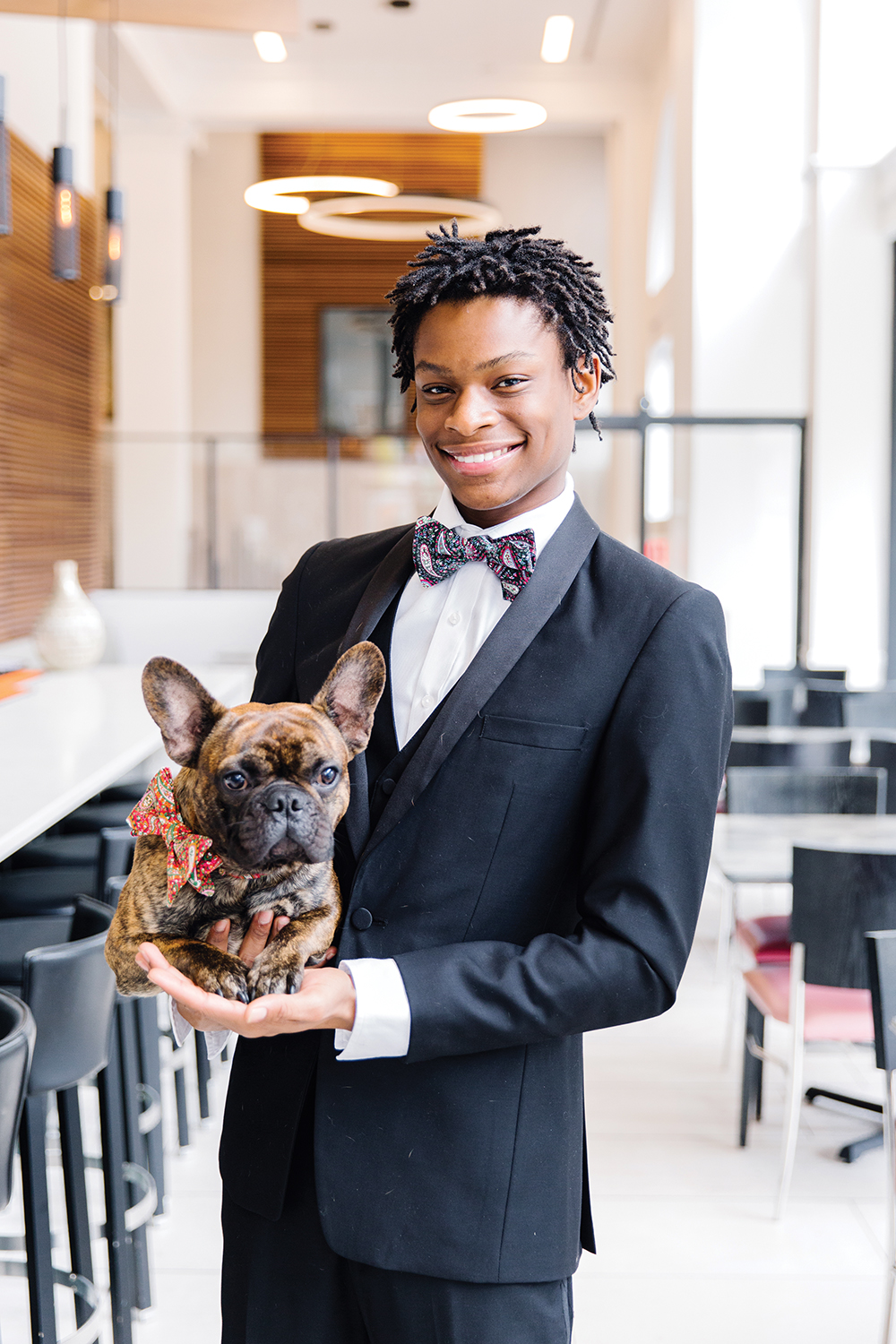
Mo’s Bows
There aren’t a lot of 20-year-olds who can say the company they started is 11 years old. In fact, it’s probably safe to say that Moziah “Mo” Bridges, founder of Mo’s Bows, is one of the few people on the planet who can make such a claim.
“I started making bow ties because I couldn’t find any that fit my personality,” Bridges says, referring to his obviously stylish 9-year-old self. “I wanted something different. My dad was always stylish. My grandmother was a seamstress, so she showed me how to sew, and after that, I made my first ties. It didn’t start out as a company; I just wanted them to wear. But then when I went out to the mall or to school, people kept asking about them. That’s when we decided to start a company and call it Mo’s Bows.”
The ensuing decade was an exciting one. Consider: Bridges has appeared on The Steve Harvey Show, The Today Show, Good Morning America, 20/20, CBS This Morning, the Disney Channel, and the hit ABC show Shark Tank. Mo’s Bows has also been featured in O: The Oprah Magazine.
And we’re just getting started with the honors and accolades. As a teenage CEO, Bridges was inducted into the Tennessee State Museum Costume and Textile Institute in 2014. He served as the fashion correspondent for the 2015 NBA draft and was twice named to Time magazine’s list of “30 Most Influential Teens.”
And there’s more. In 2016, Bridges was invited to the inaugural White House Demo Day, where he met President Barack Obama and gave him a special “Obama Blue” Mo’s Bow. That same year, he was named to Fortune magazine’s “18 under 18” list of the country’s most innovative business-minded teens. In 2017, the National Basketball Association called back and formed a partnership with the young Memphis designer to make custom neckties and bow ties for all 30 NBA teams.
All this, for a guy who just turned 20 two weeks ago.
Now a full-time businessman, Bridges still counts Shark Tank’s Daymond John as a business mentor, but his mother, Tramica Morris, holds the title of “CEO of Mo” and helps handle the operation. The company’s five employees also include Mo’s grandmother, the woman who helped get it all started 11 years ago.
“I’m very detail-oriented,” says Bridges. “I pick all the fabrics and I’m involved in all the visual elements of the business.” He’s doing something right. Mo’s Bows are sold in numerous retail stores around the country. Business partners have included Neiman Marcus, Cole Haan, and Bloomingdale’s. “There are new partnerships with GoDaddy and the NBA,” says Bridges. “And a few more in the works that I can’t talk about yet.”
So let’s talk about fashion. What’s new at Mo Bow’s?
“Well, we’ve moved into fall, obviously, and holidays are coming up,” Bridges says. “There are some new plaids in fall colors, and some fresh seasonal and holiday-themed patterns. Our matching masks and bow ties will make a great gift.” — Bruce VanWyngarden
You can check out the entire lineup, including bow ties, neckties, pocket squares, and masks at mosbowsmemphis.com.
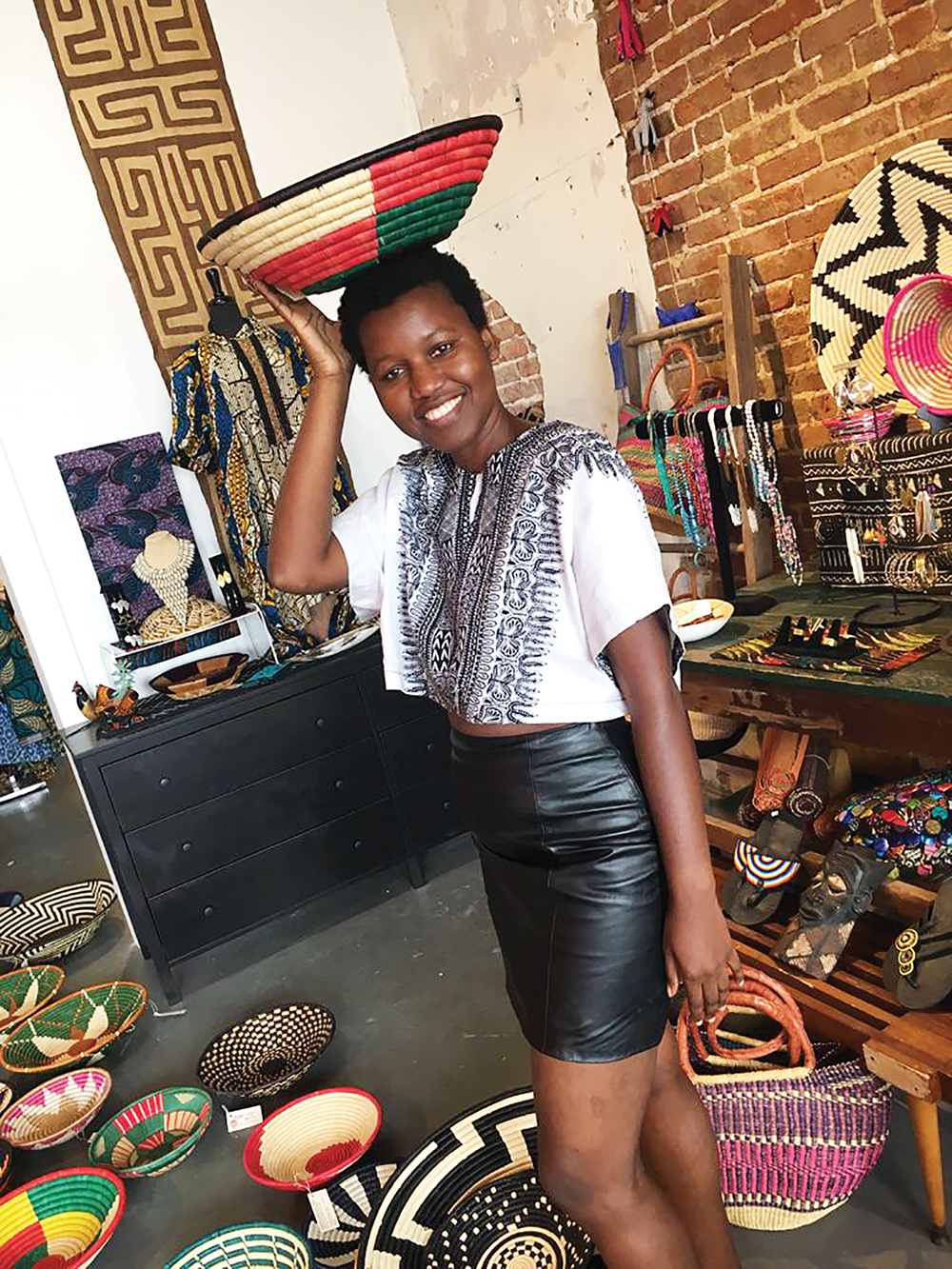
Mbabazi House of Style
Grace Byeitima, opened Mbabazi [EM-bah-bah-zee] in Memphis five years ago in the Broad Avenue Arts District. She tested her products in the Memphis market at pop-ups first. By that time, the original Mbabazi had been open in Uganda for 10 years.
The shop’s website features models of many races. It underlines Byeitima’s motto: “appreciation, not appropriation,” and she wants everyone to know that everyone is welcome at Mbabazi. — Toby Sells
Memphis Flyer: How did you come to open the store?
Grace Byeitima: Here in Memphis, we’ve been open for five years.
We started out in Merchants on Broad, which is also a store on Broad Avenue. He was renting out booths and that was a good place for us to start and see if people really — other than family and friends — were interested in what we had to offer. It turned out that they were. But we’ve had a store in Uganda for 15 years.
Tell me about your interest in African design.
When I was younger, I was really working with what I had. I admired colorful [and] different at the time. So, when I started so many years ago, I was sort of like a trendsetter. For my age, I never wanted to wear what everyone else was wearing.
I would always be like the odd man out when I started with African print. No one in my age group really was interested in African print. They had labeled it like “old people.” But I would get wraparound pants in the African print and would always just be different.
The colors really made me want to advocate more for the African print, with the people from my age group at the time,
What would make a good gift from Mbabazi this year?
Aprons [$35] are always a good gift for anyone and everyone. We do have some for little ladies and little helpers. Napkins [$12] are always a good gift to give because no one can have too many napkins.
What is the most popular item at Mbabazi?
If I say clothing, the Olivia dresses [$110] are the most popular. Away from clothing, I’ll say our fabric earrings [from $15] are a top seller.
Is there anything you want to add?
I know the word “appropriation” has been used. I feel like anything — fashion, food, culture — is supposed to be shared. Fashion is supposed to unite us as a people.
So, I came up with this line: It’s appreciation and not appropriation. When you shop with Mbabazi, you’re shopping local. [When you’re shopping locally] you’re appreciating the businesses and the people they work with. You’re not appropriating anything. So, it’s appreciation versus appropriation.
That’s a conversation that most people will [have], “Is it okay for me to come into your store because it’s an African [store]?” For me, as an African clothing store, I’m saying it’s appreciation. People are appreciating, not appropriating. So, it’s okay for anyone to wear our clothes.
Mbabazi House of Style is located at 2553 Broad Avenue; (901) 303-9347. Find out more at mbabazistyles.com.

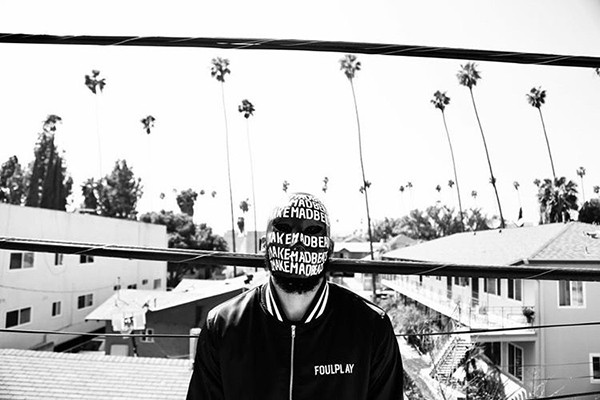 Tae Nichol
Tae Nichol 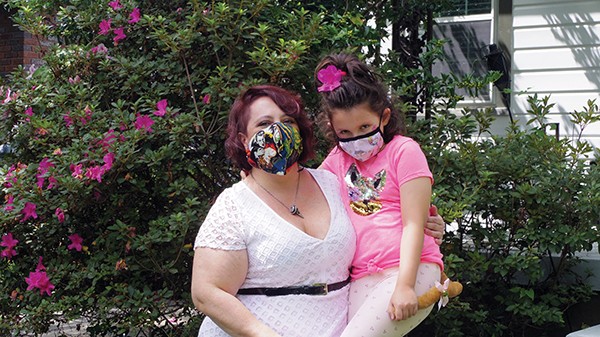 Jesse Davis
Jesse Davis 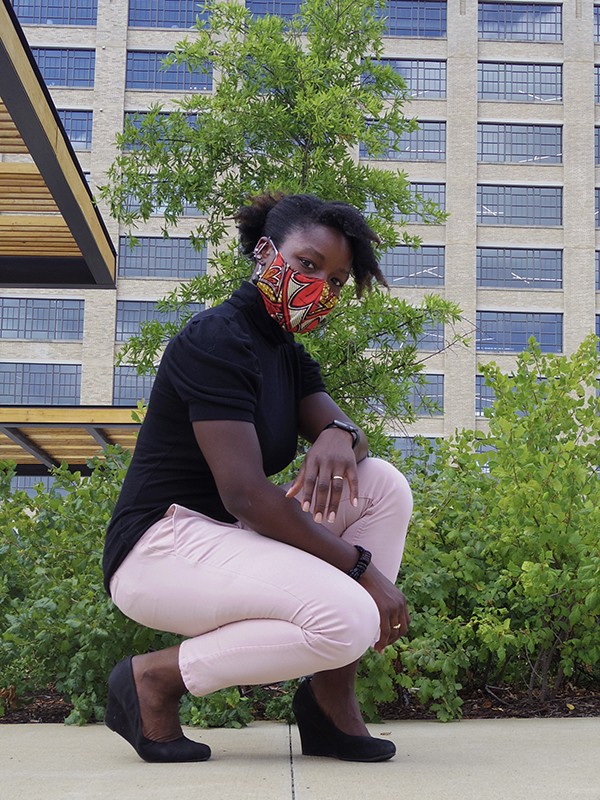 Jesse Davis
Jesse Davis 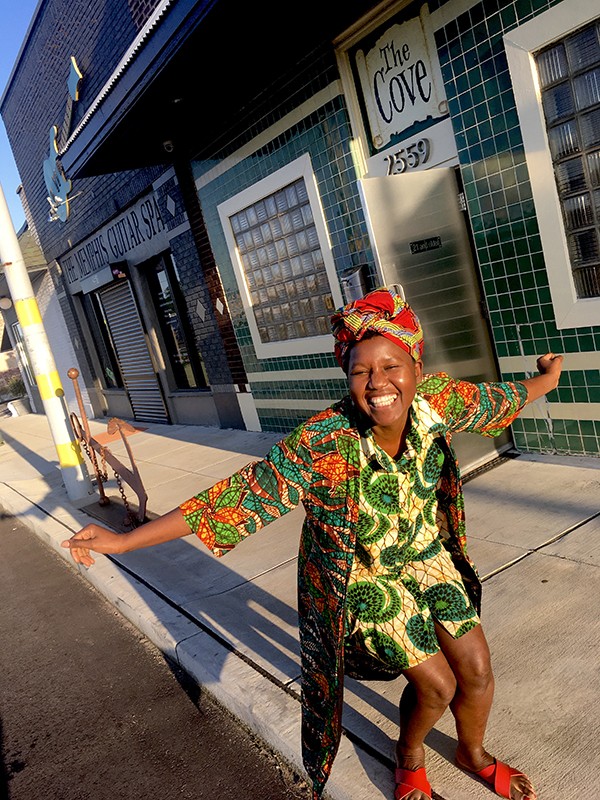 John Haley
John Haley